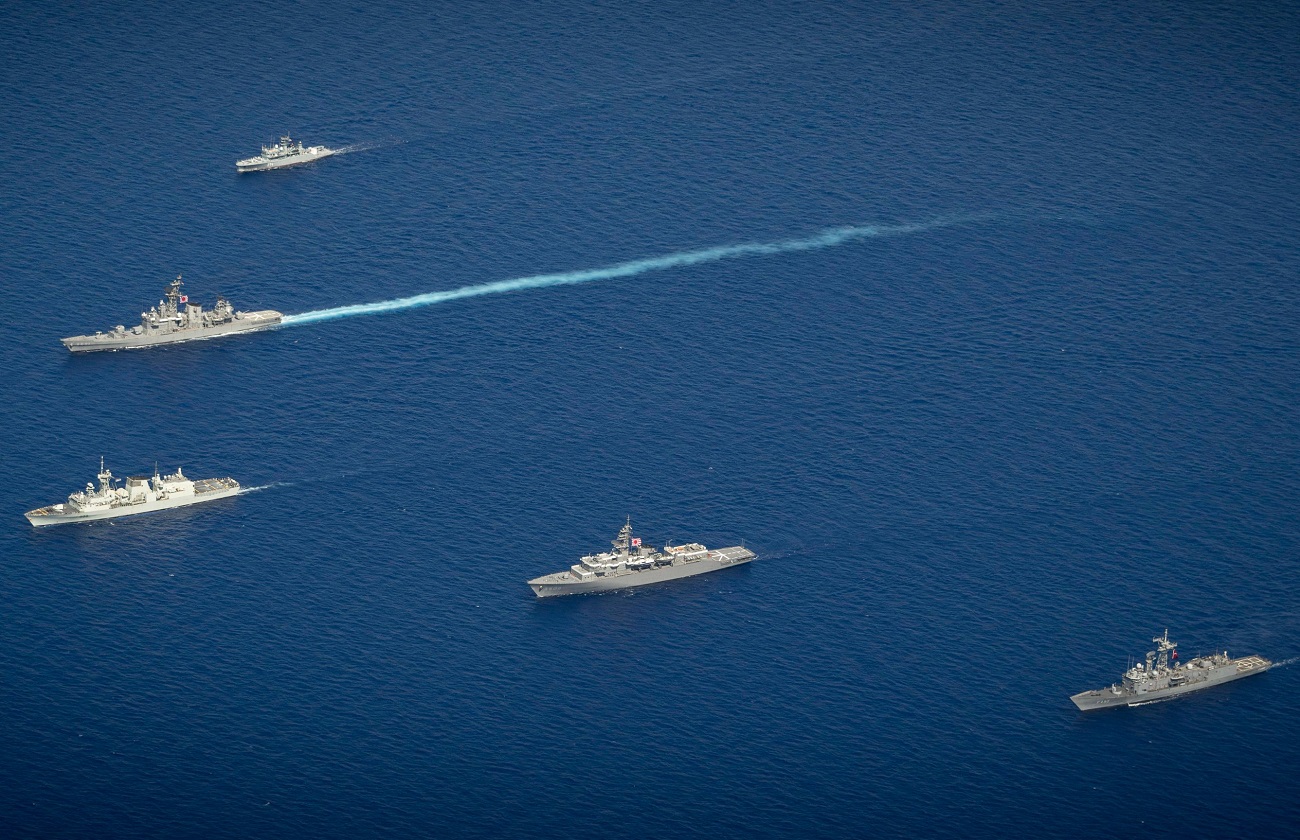HMCS Charlottetown and TCG Gaziantep from Standing NATO Maritime Group 2 (SNMG2), along with ROS Vice Admiral Constantin Balescu from Standing NATO Mine Countermeasures Group 2 conducted a Passing Exercise (PASSEX) with JS Kashima and JS Shimakaze from the Japan Maritime Self-Defense Force’s Training Squadron in the Eastern Mediterranean on 14 August 2024. During the operation, the ships conducted a wide range of activities from maneuvering exercises to communications drills. A PASSEX allows Allied and Partner navies the opportunity to develop and maintain mariner skills and strengthen interoperability. Sailors from HMCS Charlottetown, ROS Vice Admiral Constantin Balescu and JS Kashima had the opportunity to visit each other’s ships in a cross-deck exercise to enhance friendship and goodwill. Beyond partnerships, leaders emphasized routine exercises at sea between Allied and Partner nations enhance readiness and the ability to operate effectively together.
“The Japan Maritime Self-Defense Force has a longstanding relationship with NATO when it comes to Maritime Security. We are seeing more and more that the Indo-Pacific is important for NATO, given that developments in that region can directly affect Euro-Atlantic security. Exercising with the Japan Maritime Self-Defense Force in the Eastern Mediterranean is a fantastic representation of the interconnectedness between NATO and Japan. These exercises allow us to improve interoperability not only with Alliance members but also our international partners,” said Royal Canadian Navy Commodore Matthew Coates, Commander of SNMG2.

“The successful conduct of the PASSEX with our esteemed Japanese counterparts and Alliance members epitomizes our unwavering commitment to maritime security and operational excellence. This exercise highlights the critical importance of keeping cooperation with our Partners at the highest level. We have to benefit from any training opportunities with our Partners and enhance our ability to operate together effectively and ensure we are always ready to protect global maritime routes. Our commitment to preserving the freedom of navigation and addressing potential threats is vital for maintaining stability and security in our region,” said Romanian Navy Captain Sebastian Barote, Commander of SNMCMG2.
SNMG2 is a multinational, integrated maritime force made up of vessels from Allied nations to perform various tasks ranging from exercises to support of operations. They also help to establish Alliance presence, demonstrate solidarity, conduct routine diplomatic visits to different countries, support Partner engagement and provide a variety of maritime military capabilities to ongoing operations. SNMCMG2 is a multinational naval force dedicated to mine countermeasures (MCM), comprising state-of-the-art minehunters and minesweepers. These specialized vessels are at the forefront of maritime safety, executing complex operations to detect, identify and neutralize naval mines and explosive ordnance, ensuring the secure passage of naval and commercial vessels. Allied Maritime Command (MARCOM) is the central command of all NATO maritime forces and the MARCOM Commander is the primary maritime advisor to the Alliance.















